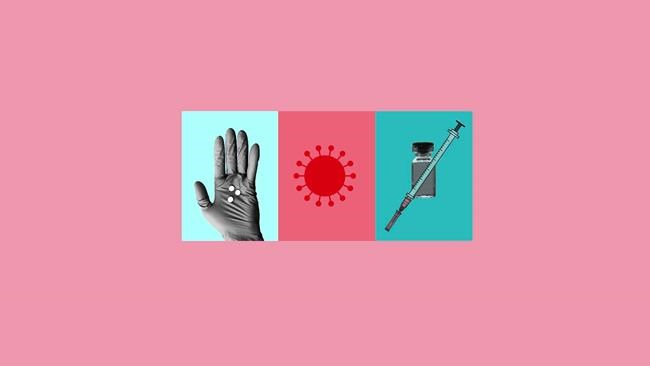Can I take painkillers before or after a COVID-19 vaccine?
Advertisement
Read this article for free:
or
Already have an account? Log in here »
To continue reading, please subscribe:
Monthly Digital Subscription
$0 for the first 4 weeks*
- Enjoy unlimited reading on winnipegfreepress.com
- Read the E-Edition, our digital replica newspaper
- Access News Break, our award-winning app
- Play interactive puzzles
*No charge for 4 weeks then price increases to the regular rate of $19.00 plus GST every four weeks. Offer available to new and qualified returning subscribers only. Cancel any time.
Monthly Digital Subscription
$4.75/week*
- Enjoy unlimited reading on winnipegfreepress.com
- Read the E-Edition, our digital replica newspaper
- Access News Break, our award-winning app
- Play interactive puzzles
*Billed as $19 plus GST every four weeks. Cancel any time.
To continue reading, please subscribe:
Add Free Press access to your Brandon Sun subscription for only an additional
$1 for the first 4 weeks*
*Your next subscription payment will increase by $1.00 and you will be charged $16.99 plus GST for four weeks. After four weeks, your payment will increase to $23.99 plus GST every four weeks.
Read unlimited articles for free today:
or
Already have an account? Log in here »
Hey there, time traveller!
This article was published 25/03/2021 (1720 days ago), so information in it may no longer be current.
Can I take painkillers before or after a COVID-19 vaccine?
Don’t take them before a shot to try to prevent symptoms, but if your doctor agrees, it’s OK to use them afterward if needed.
The concern about painkillers is that they might curb the very immune system response that a vaccine aims to spur. Vaccines work by tricking the body into thinking it has a virus and mounting a defence against it. That may cause temporary arm soreness, fever, muscle aches or other symptoms of inflammation — signs the vaccine is doing its job.

Some research suggests that certain painkillers including ibuprofen (Advil, Motrin and other brands) might diminish the immune system’s response. A study on mice suggests these drugs might lower production of antibodies, which block the virus from infecting cells.
Other research has found that painkillers might dampen the response to some childhood vaccines, so many pediatricians recommend that parents avoid giving children the medicines before a shot and only if needed afterward, said Dr. William Schaffner, an infectious disease expert at Vanderbilt University.
The U.S. Centers for Disease Control and Prevention recently updated its guidance to recommend against painkillers before a COVID-19 shot. It says they can be taken afterward for symptoms if you have no other medical conditions precluding their use, but to talk to your doctor.
If you’re already taking one of those medications for a health condition, you should not stop before you get the vaccine — at least not without asking your doctor, said Jonathan Watanabe, a pharmacist at the University of California, Irvine.
If you’re looking to relieve symptoms after your shot, he added, acetaminophen (Tylenol) is better because it works in a different way than some other painkillers.
“If you have a reaction afterwards and need something, take some acetaminophen,” Schaffner agreed. He added that the immune response generated by the vaccines is strong enough that any dampening effect by painkillers is likely slight and won’t undermine the shots.
The CDC offers other tips, such as holding a cool, wet washcloth over the area of the shot and exercising that arm. For fever, drink lots of fluids and dress lightly. Call your doctor if redness or tenderness in the arm increases after a day or if side effects don’t go away after a few days, the CDC says.
___
The AP is answering your questions about the coronavirus in this series. Submit them at: FactCheck@AP.org. Read more here:
What should I know about COVID-19 vaccines if I’m pregnant?
How do we know the COVID-19 vaccines are safe?
How long could I be contagious before a positive virus test?

